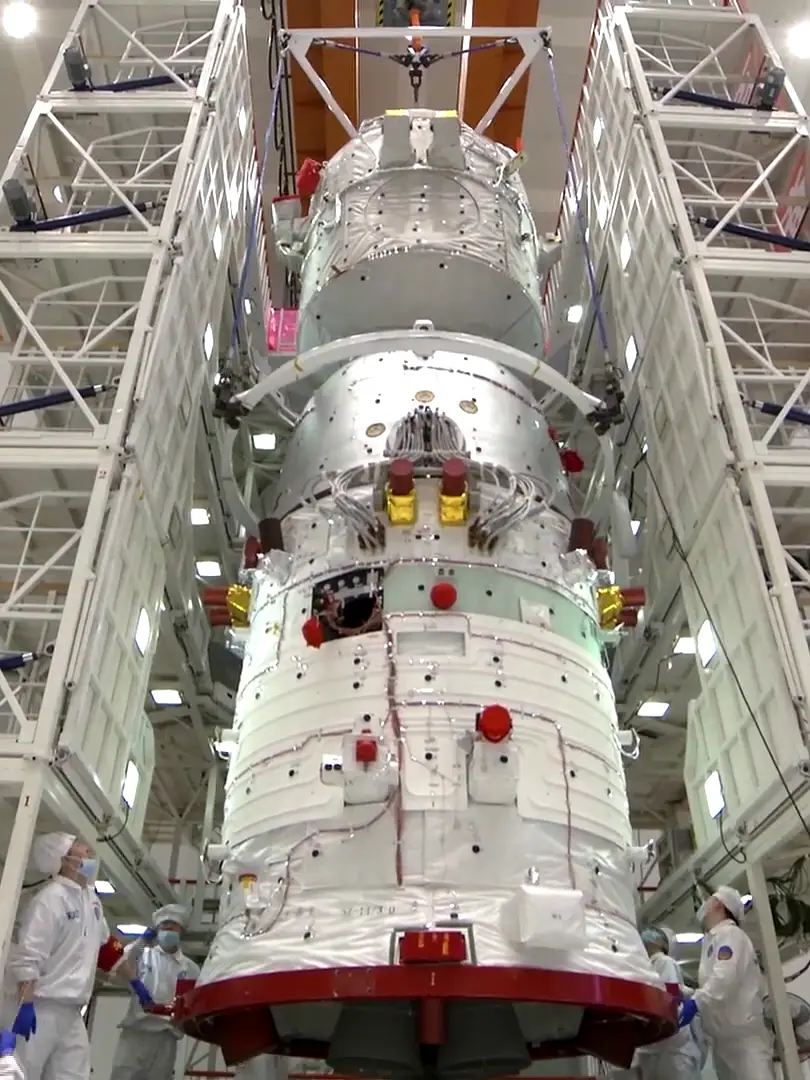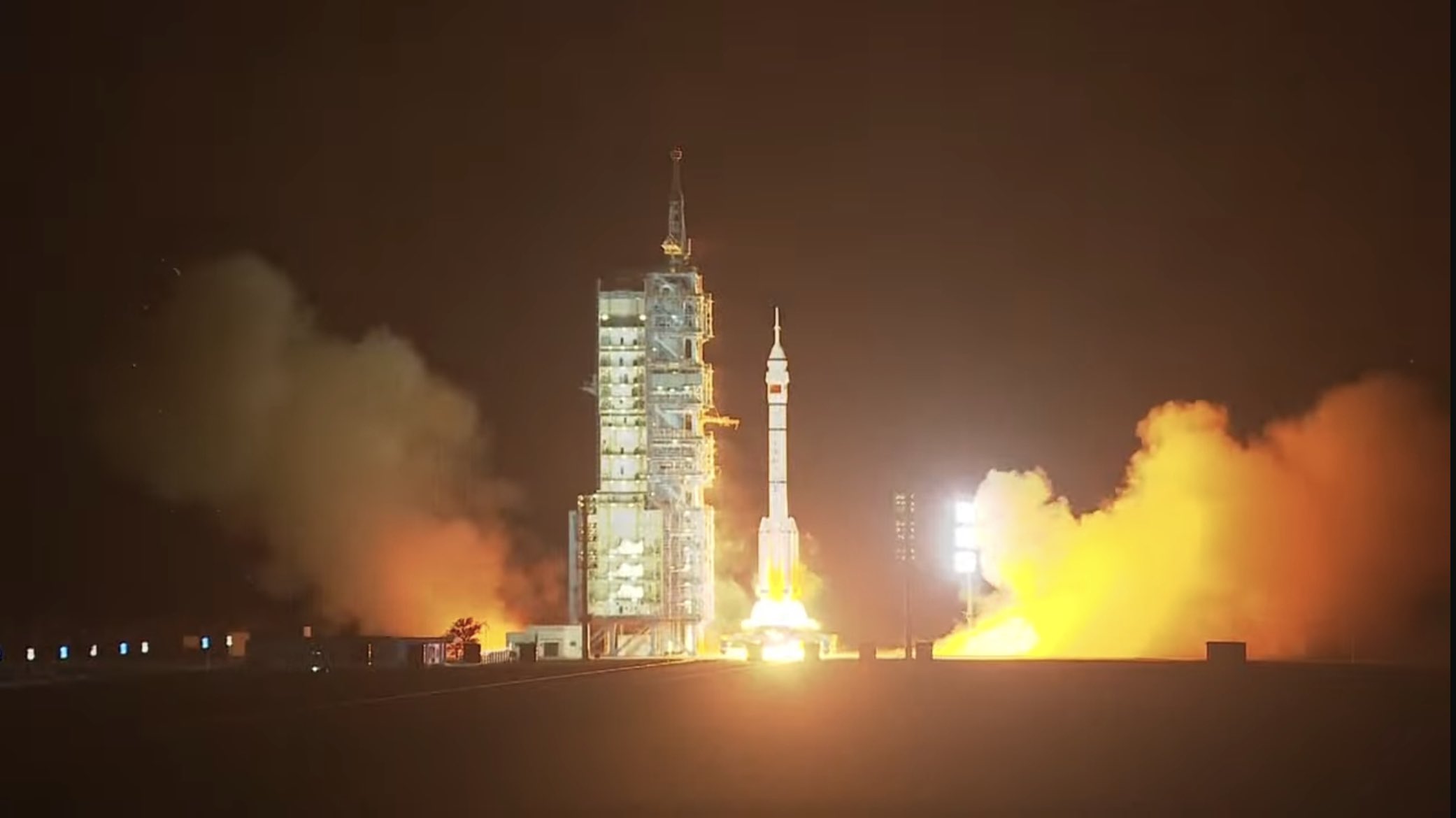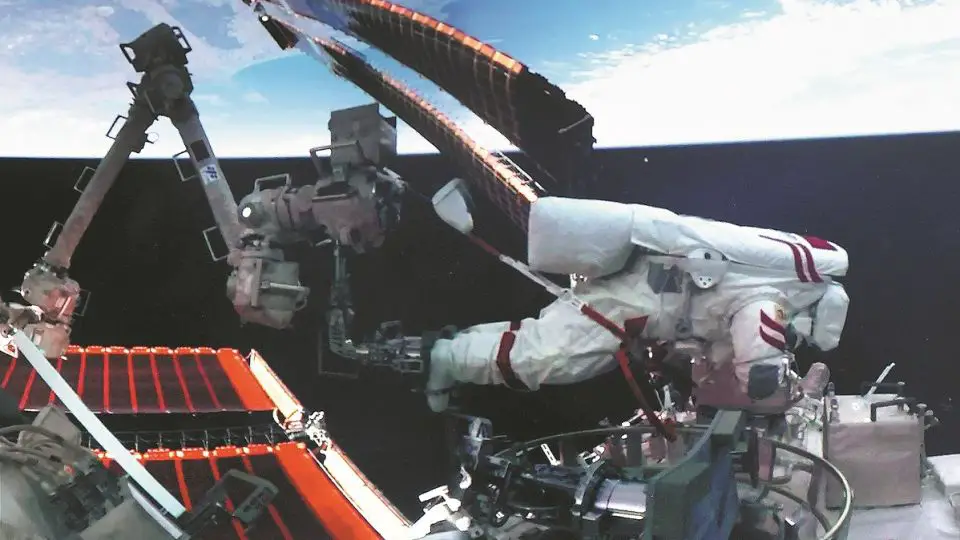Securing national interests has become increasingly complex and critical in an era marked by rapid advancements in space exploration and technology. As nations like China push the boundaries of space travel with missions such as the recent Shenzhou XVIII and upcoming Shenzhou XIX crewed spacecraft launches, the implications for global security, technological sovereignty, and international relations come into sharper focus. While space exploration has traditionally been a scientific endeavor and discovery domain, it is now interwoven with the threads of national security and geopolitical strategy.
Space: The New Frontier of National Security
The growing focus on space as a domain for national security is driven by the increasing reliance on space-based infrastructure for communication, navigation, and surveillance. Satellites are crucial in global positioning systems (GPS), telecommunications, military operations, and even climate monitoring. The loss or compromise of space assets can have far-reaching consequences, not just for military operations but for civilian life as well. With space becoming an essential part of the modern digital and technological ecosystem, the need to protect these assets from both physical and cyber threats is paramount.
For China, the Shenzhou XVIII mission, which saw astronauts spending six months aboard the Tiangong space station, is a demonstration of its expanding capabilities in space. The mission is not only a testament to China’s growing prowess in space technology but also highlights the broader strategic importance of space as a domain of national security. As China’s space program advances, so does its ability to leverage space technology for both civilian and military applications, underscoring the dual-use nature of space assets.
The return of the Shenzhou XVIII crew, consisting of Senior Colonel Ye Guangfu, Lieutenant Colonel Li Cong, and Lieutenant Colonel Li Guangsu, marks the completion of a significant mission that involved extensive scientific research, data collection, and routine maintenance of critical life-support systems. These activities are not just routine operational tasks; they are part of a broader strategy to develop sustainable and resilient space capabilities that can support long-term habitation, technological experimentation, and, ultimately, defense applications.

The Role of Space in Modern Defense Strategies
As space becomes an increasingly contested domain, nations are investing heavily in space defense capabilities. These efforts include the development of anti-satellite (ASAT) weapons, space-based missile defense systems, and advanced satellite technologies designed to enhance surveillance, reconnaissance, and communications for military purposes. The ability to dominate space, or at least secure a reliable presence in it, has become a key element of national defense strategies around the world.
China’s Tiangong space station serves not only as a platform for scientific exploration but also as a potential hub for military and defense-related activities. The crewed missions to Tiangong demonstrate China’s capacity to maintain a sustained human presence in space, which could have significant implications for its military capabilities. The ability to deploy and operate in space for extended periods is a critical advantage in terms of intelligence gathering, strategic positioning, and even the potential deployment of space-based weapons or defense systems.
The Shenzhou XVIII crew’s work on life-support systems and environmental control aboard Tiangong is more than just a technical achievement; it is a step towards ensuring that China can maintain a self-sufficient space station, which could be used for a variety of purposes, including military ones. The Shenzhou XIX mission, set to launch in late October, will continue this trajectory, bringing a new crew to the station to build upon the work of their predecessors and further strengthen China’s space capabilities.

Technological Sovereignty and the Space Race
The pursuit of technological sovereignty is a driving force behind many nations’ space programs, particularly for countries like China, which seek to reduce dependence on foreign technology and develop indigenous capabilities. Space exploration is a key area where technological independence is crucial, as it involves a range of cutting-edge technologies, from rocket propulsion systems to satellite communications and environmental control systems.
China’s space program has made significant strides in achieving technological sovereignty. The Shenzhou series of crewed spacecraft, the Tiangong space station, and the country’s growing satellite network are all testaments to its ability to develop and deploy advanced space technologies without relying on foreign partners. This independence is critical not only for national pride but also for security, as it reduces vulnerabilities that could be exploited by other nations or entities.
Technological sovereignty in space also has broader implications for global geopolitics. The ability to develop and control advanced space technologies gives nations leverage in international negotiations, particularly in areas such as arms control, trade, and cybersecurity. As space becomes a more crowded and competitive domain, the nations that can maintain technological independence will have a significant advantage in shaping the rules and norms that govern space activities.
The Shenzhou XVIII crew’s experiments and data collection efforts are part of this broader push for technological sovereignty. By conducting space research, China is not only advancing its scientific knowledge but also developing technologies that could be applied to future space missions, both civilian and military. The ability to innovate in space technologies will be a key determinant of which nations can maintain their sovereignty and security in an increasingly interconnected and interdependent world.

Cybersecurity in Space: A Growing Concern
As space-based assets become more integral to national security and everyday life, the threat of cyberattacks on these systems has become a major concern. Satellites, spacecraft, and ground control systems are all vulnerable to cyber intrusions, which can compromise their functionality or even lead to catastrophic failures. The integration of space-based infrastructure into national defense systems makes cybersecurity in space an essential component of overall national security.
China’s space program, like those of other leading spacefaring nations, must contend with the growing risk of cyberattacks. Protecting the Tiangong space station and its associated systems from cyber threats is critical to ensuring the success of missions like Shenzhou XVIII and XIX. The development of robust cybersecurity measures for space assets is not just a technical challenge but a strategic imperative, as the loss of control over these systems could have dire consequences for both national security and global stability.
The increasing reliance on artificial intelligence (AI) and machine learning (ML) in space operations adds another layer of complexity to the cybersecurity challenge. While AI and ML can enhance the efficiency and effectiveness of space missions, they also create new vulnerabilities that can be exploited by malicious actors. Ensuring the security of these technologies is critical to maintaining the integrity of space operations and preventing cyberattacks from undermining national security.
International Collaboration and Competition in Space
While space exploration offers opportunities for international collaboration, it is also a domain of intense competition. The global space race is not just about scientific discovery; it is about securing strategic advantages and asserting dominance in a rapidly evolving technological landscape. The competition between spacefaring nations, particularly the United States, Russia, and China, is shaping the future of space exploration and its role in national security.
China’s space program has grown significantly in recent years, positioning the country as a major player in the global space race. The Tiangong space station is a key part of China’s strategy to establish itself as a leader in space exploration and to challenge the dominance of the United States and Russia in this domain. The Shenzhou XVIII and XIX missions are milestones in this broader effort to secure a foothold in space and leverage space technology for both civilian and military purposes.
However, the growing competition in space also presents opportunities for collaboration. Space is a global commons, and many of the challenges associated with space exploration, such as space debris and the militarization of space, require international cooperation to address. While nations may compete for technological dominance and strategic advantages, there is also a need for collaboration on issues that affect all spacefaring nations.
The Shenzhou XVIII crew’s participation in international dialogues about space exploration, as evidenced by their video call with Chinese media, reflects the importance of public diplomacy in shaping the global narrative around space activities. By engaging with the international community and showcasing its achievements in space, China is positioning itself as a responsible and capable spacefaring nation that is willing to collaborate on key issues while also pursuing its strategic interests.

The Future of Space Security
As nations like China continue to expand their presence in space, the security challenges associated with space exploration will become more pronounced. The dual-use nature of space technologies, the growing threat of cyberattacks, and the competition for technological sovereignty all underscore the importance of space security in the 21st century. The Shenzhou XVIII and XIX missions are just the latest examples of how space exploration is becoming a key element of national security strategies around the world.
The future of space security will depend on the ability of nations to balance competition with collaboration, to protect their space-based assets from both physical and cyber threats, and to develop the technologies needed to maintain a sustained presence in space. As space becomes an increasingly important domain for national security, the decisions made by governments, militaries, and space agencies today will shape the future of global security for decades to come.
The strategic importance of space security cannot be overstated. As the Shenzhou XVIII mission demonstrates, space exploration is not just about scientific discovery; it is about securing national interests, advancing technological sovereignty, and maintaining a competitive edge in a rapidly evolving global landscape. The upcoming Shenzhou XIX mission will continue to build on these achievements, further solidifying China’s position as a leader in space and a key player in the future of global security.



